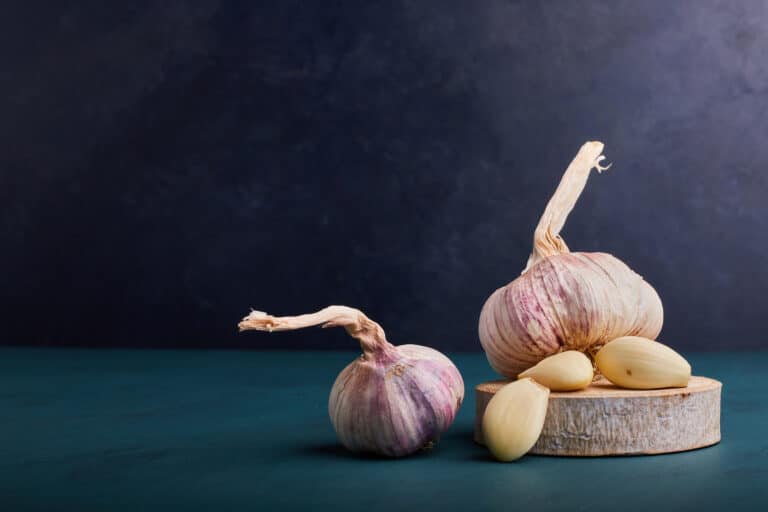There are many complicated dietary issues in the world of dog care. One of the most controversial questions is “Does garlic hurt my dog?”. Can dogs eat garlic? Or is garlic good for your dog’s health?
There is no easy answer to this question. Whether you choose to feed your dog garlic, read what I found below.
However, for most dogs, it is advisable to avoid garlic. Although it may offer some interesting benefits, it is not worth the risk.
CONTENT:
- What if a dog eats garlic?
- Is garlic toxic for dogs?
- How much garlic is toxic to dogs?
- Will a small amount of garlic hurt my dog?
- What kind of garlic is toxic to dogs?
- Is garlic good for dogs?
- Can dogs eat garlic in small doses?
- Why would my dog eat garlic?
- What should I do if my dog eats garlic?
- How do you treat garlic poisoning in dogs?
1. What if a dog eats garlic?
When a dog eats garlic, they are at risk of developing hemolytic anemia. This condition causes red blood cells to erupt in the body, which can lead to a decrease in the number of red blood cells and other conditions.
Dogs may also have gastroenteritis or an inflamed stomach and intestines after eating garlic. This can cause stomach pain and worsen the underlying conditions.
2. Is garlic toxic for dogs?
When you ask if garlic can hurt your dog, what I hear is a question about the level of toxicity. Garlic is one of the foods (such as onions) that veterinarians say are toxic to dogs, which scares dog owners.
To understand what happens and what can happen to a dog when it eats garlic, we need to do more research. Let’s talk about what happens when a dog eats garlic and what we should worry about.
3. How much garlic is toxic to dogs?
The truth is that you should give your dog a fairly large amount of garlic over a long period to see any negative effects.
If it is toxic to garlic, you will notice the following symptoms:
- shortness of breath
- lethargy
- diarrhea
- vomiting
- colorless gums
- Increased heart rate and respiratory rate
- weakness
4. Will a small amount of garlic hurt my dog?
Garlic is dose-dependent – the more thiosulfates your dog consumes per kilogram of body weight, the more damage will be done. Therefore, the amount of garlic ingested and the size of the dog may play a role in the effect on your dog.
For example, if a small breed dog eats a large amount of garlic, then it is more likely to have a negative effect. compared to a big dog.
Your veterinarian can calculate if your dog has ingested a toxic dose by taking the amount of garlic consumed and the weight of your dog. However, as the amounts of garlic in some foods are unknown, this may not be possible. Unfortunately, cooking garlic does not reduce its toxicity. The effects will be the same as unprepared garlic.
Additionally, your dog’s breed should be considered. Dogs of Japanese origin may be more susceptible to garlic toxicity, but it is not clear why.
5. What kind of garlic is toxic to dogs?
All types of garlic hurt your dog. Raw and cooked cloves and garlic bulbs are toxic to dogs. Garlic powder is toxic too – just like liquid garlic supplement. Wild garlic is also considered poisonous. In other words, if you have garlic, it should be avoided.
6. Is garlic good for dogs?
There are a lot of things that garlic is supposed to do for dogs:
- Prevents blood clots from forming
- Prevents the accumulation of cholesterol
- Makes blood vessels wider
- Prevents tumors
- It is anti-fungal and antiparasitic
- Keep fleas away
These are the benefits that garlic fans say it brings with a regular dosage.
7. Can dogs eat garlic in small doses?
There was no evidence that I could not.
An adequate dose of raw garlic will not have enough thiosulfate to cause an overdose of garlic. It would take a lot of garlic over a long period of time or a huge dose to die from a garlic overdose.
If you are going to give him garlic, choose fresh garlic. Chop it and set it aside for 10-15 minutes before handing it over. Give it only once a week to prevent any risk.
8. Why would my dog eat garlic?
Dogs are very curious creatures and love to explore the world through their noses and mouths. The combination of this curious nature and a keen sense of smell can make your beloved pet a little annoying by eating things that may be toxic to them. Garlic is not safe for dogs to eat and can cause toxicity if eaten.
Garlic is a widely used ingredient and can therefore be found in many foods. It may not be immediately obvious that your dog has ingested garlic, so to avoid toxicity, it is best not to feed your dog human food.
Garlic can be found in many forms, whether it is cooked or fresh, such as whole garlic cloves, or it can be divided into garlic powder or garlic salt. Garlic bread or garlic butter are other foods that contain large amounts of garlic.
Dogs can eat any of these items. Unfortunately, your dog does not know that what he is eating is harmful to their health. It is vital to make sure that these items are out of the reach of the dog.
9. What should I do if my dog eats garlic?
While garlic is considered toxic to dogs, it is worth noting that the likelihood of a dog experiencing symptoms of garlic poisoning will be closely linked to the amount of garlic it consumes.
The American Kennel Club estimates that a dog should eat between 15 and 30 grams of garlic for each kilogram of their body weight to cause symptoms. A standard clove of garlic, for comparison, is usually found somewhere between three and seven grams.
Your dog’s size will also consider how severely it can affect garlic consumption.
So, if you notice that your dog has failed some garlic, try to find out exactly how much he ate, then track its behavior and look for any of the common symptoms listed above.
10. How do you treat garlic poisoning in dogs?
There is no antidote to garlic poisoning. Treatment for situations when garlic hurts your dog is based on supportive care and treatment of the present symptoms. If a case of garlic ingestion is caught early and treatment is promptly instigated, then the prognosis is good and recovery is generally complete.
However, if garlic ingestion goes undetected and your pet has severe clinical symptoms, then this can be fatal.
It is important to contact your veterinarian as soon as you realize that your dog has eaten garlic so that treatment can be started earlier. To prevent garlic poisoning, it is important to make sure that all items of garlic or foods containing garlic are kept in a safe place, away from our loved ones. Prevention is certainly better than cure.

